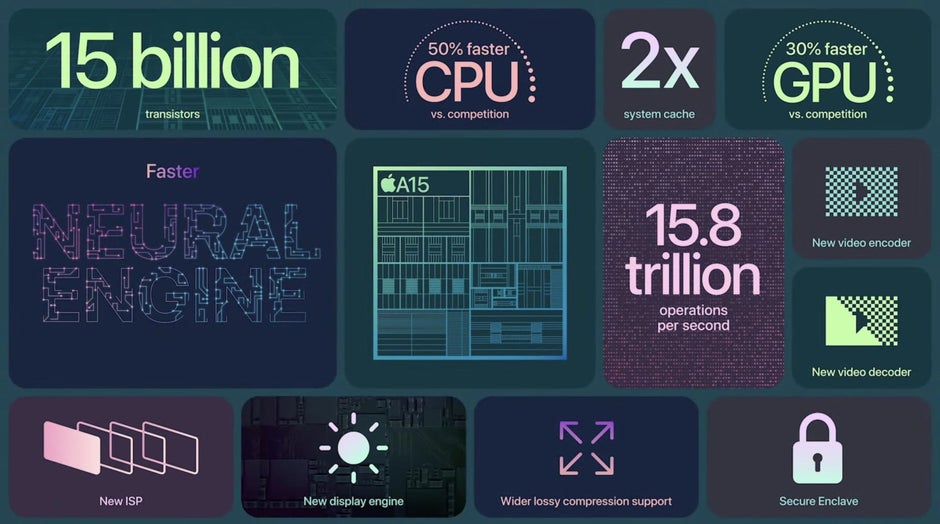No change in delivery times indicates strong demand for the iPhone 13 series
In the U.S., the delivery times also haven’t changed much over the last week and are lower than the global averages. The iPhone 13 and iPhone 13 mini are arriving at purchasers’ locations after 11 days in the states while the iPhone 13 Pro and iPhone 13 Pro Max have a 28-day lead time. Same-day pickup is still available for the two non-Pro models while this option for the Pro variants is hard to find in the U.S.
Securing enough chips for iPhone production has started to become a pain for Apple and the company has reportedly cut production of the iPad by 50% in order to save components for the iPhone 13 series and other models. For example, the recently released iPad mini 6 happens to use the A15 Bionic chip, which is the same SoC that powers the 2021 iPhone series.
For the first time ever, the iPhone will be powered by a chip using the same process node for three consecutive years
Not all iPads can share chips with iPhone units. The iPad Pro is powered by Apple’s M1 chipset which contains 16 billion transistors and is not employed on any iPhone model. The news about iPhone chips has not been good lately. Besides the chip shortage. TSMC has found that producing chips with its 3nm process node is more complex than anything which has forced the world’s top contract foundry to delay shipments of these components until next year.
Just because the iPhone 14 series will be equipped with a 5nm chip again, it doesn’t mean that there won’t be any improvement between the A15 Bionic and A16 Bionic. It does mean that for the first time in iPhone history, the same process node (not including any enhancements) will be used on three consecutive A-series chips. And that is against the law; Moore’s Law that is.


